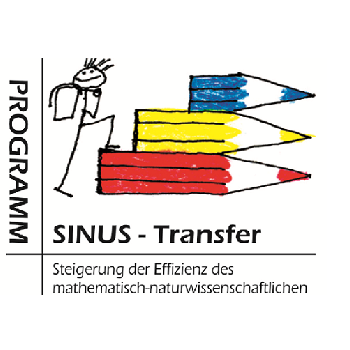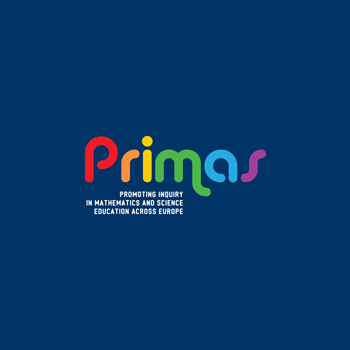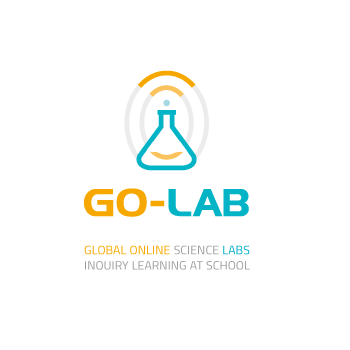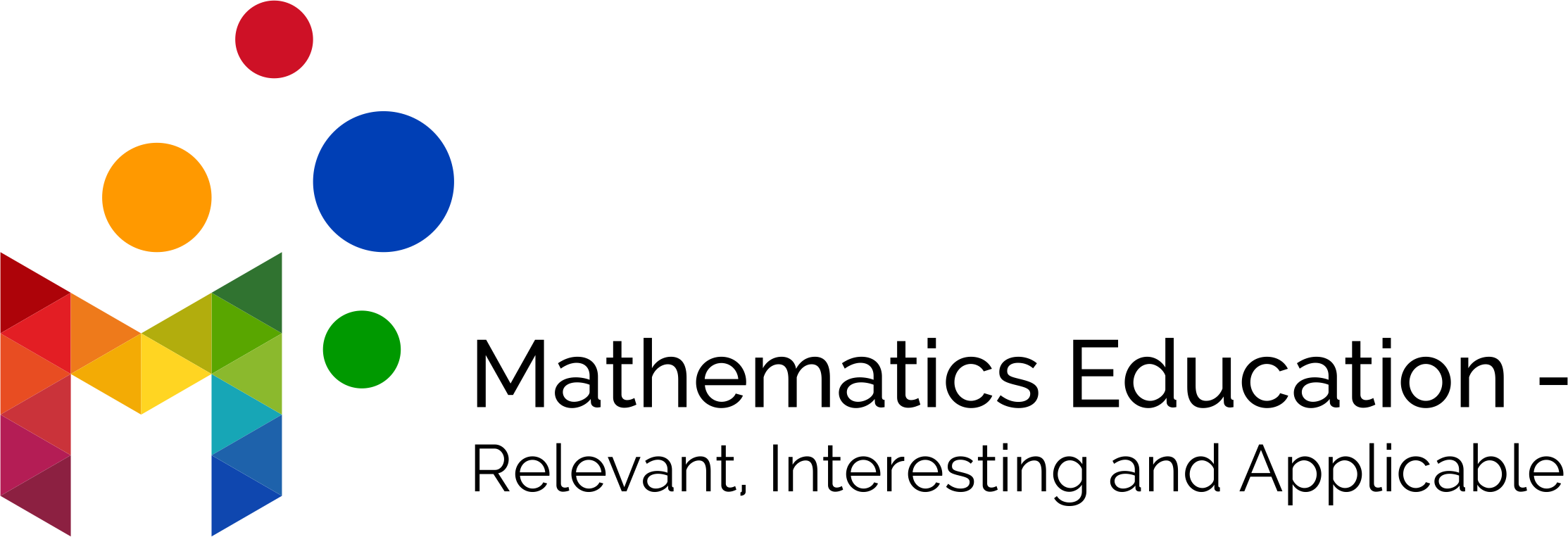To support teachers in applying new methods we will to organize local workshops through which we would explain the main ideas of inquiry-based teaching, discuss materials that we have designed, explore how to use them and work with teachers on the design of their own teaching materials highlighting “21st century” competences (key competences given by the European Reference Framework). We also wish to provide our teachers an opportunity to meet with colleagues and discuss how to encourage development of mathematical thinking.

MERIA materials will be showcases of lectures that come with tailor-made teaching and assessment methods appropriate for problem-based learning based on TDS and RME, instructions for teachers on how to manage time, what kind of responses to anticipate, how to connect it with intended outcomes, estimate of student’s workload, how to assess student’s progress etc.
The design of materials will be a joint activity of all partners. The lecture materials will focus on the introduction of mathematical concepts through discovery but with the necessary attendance to procedural fluency. Special attention will be given to mathematical modelling, progressive formalization, conjecturing and proving, scientific approach, understanding instead of memorizing, critical thinking, model-eliciting activities, inquiry-based learning, student-centered approach and motivational examples that come from the real world (digital world, architecture, biology, social networks, navigational systems, economy etc.). The project would aim at high-school mathematics education and development of higher forms of thinking (not only number sense and spatial sense). The assignments will be appropriate for all students, as the project strives for inclusiveness.

MERIA team consists of university professors in mathematics and mathematics education, high-school mathematics teachers, representatives of education institutes and experts from mathematics associations. One of the project goals is exchange of practice between partners and finding successful paths in mathematics education. Partners will learn about Freudenthal’s approach from Dutch partners, Brousseau’s approach from Danish partners and compare experiences from all four educational systems. These activities would be organized as short-term joint staff training events and will result in two outputs: Practical guide for inquiry-based mathematics teaching, Guidelines for development of innovative inquiry based scenarios and modules..

European mathematical education tends to shift the emphasis from drill and practice to problem solving and inquiry activities that could also help making mathematics more attractive and relevant to young people. Our ultimate aim is to address low achievement in basic skills and improve student’s attitude towards mathematics; but research confirms that most students are unable to acquire basic skills without meeting situations in which these skills are to be used and which are perceived as meaningful (practically, intellectually) by the students. With MERIA, we wish to provide new teaching materials and focus on development of teachers’ competencies to establish such “inquiry situations” as we believe that is the key step towards our main goal. It is our experience that didactical designs in order to be shareable among and applicable for diverse users must be based on systematic and explicit framework. As a starting point we will take two related but separate strategies, which are both well established and solidly rooted in research within the partnership countries: (1) realistic mathematics education (RME) and progressive formalization, (2) didactical engineering based on the theory of didactic situations (TDS). In the first strand, the focus is on basing learning of mathematics in situations perceived by the students as “real” (for instance, taking a problem from everyday life as point of departure). In the second, the design begins from epistemological analysis of a target mathematical knowledge, to construct a “re-contextualization” in the form of a problematic situation, maximizing the potential for students’ autonomous inquiry. We would like to see how teaching based on these two strands of mathematics education is working in the participating countries, and learn from experiences in each others’ countries..

Strategic framework for European cooperation in education and training (ET 2020) addresses, as one of educational targets of EU, reducing the share of low achievement in basic competences across Europe. These competences cover literacy, mathematics, science and digital literacy. Especially in mathematics, the overall aim of ET 2020 is reaching the rate of low achievers below the EU benchmark of 15%. This aim is set in respect to today’s rate of 22,1% according to the PISA 2012 report, which is still lower than the overall OECD average of 23% and USA average of 25.8%. While mathematical competence is considered as the ability to develop and apply mathematical thinking in order to solve a range of problems in everyday situations, still a lot of activities and effort is needed to address low achievers in order to realise their potentials.
The MERIA project participating countries face different rates of low achievers in mathematics (with the highest rate of 29.9% in Croatia). However, they still share the similar trends in change, mostly showing serious stagnation in the area of mathematics. This deficit of skills is believed to be the key barrier in addressing the issue of students’ choices to pursue mathematics as a part of their higher education studies and/or key barrier in addressing better options in employability in technology-rich societies. Despite the obvious employment possibilities that requires mathematical knowledge and skills at the secondary school level students show low interest, widely spread negative attitudes and already mentioned low achievements in mathematical literacy.

To support teachers in applying new methods we will to organize local workshops through which we would explain the main ideas of inquiry-based teaching, discuss materials that we have designed, explore how to use them and work with teachers on the design of their own teaching materials highlighting “21st century” competences (key competences given by the European Reference Framework). We also wish to provide our teachers an opportunity to meet with colleagues and discuss how to encourage development of mathematical thinking.
The MERIA project activities address the low achievers in mathematics with the ultimate aim of improving students’ achievements and attitudes towards mathematics. Research confirms that most students are unable to acquire basic skills without meeting situations in which these skills are to be used and which are perceived as meaningful by the students. Therefore, the MERIA project wishes to focus on educational paradigm of problem-based learning by making mathematics relevant and interesting to students as well on development of teachers’ competencies to establish appropriate “inquiry situations”. It is our experience that didactical designs in order to be shareable among and applicable for diverse users must be based on systematics and an explicit framework. One of the project goals is to exchange educational practices between partners and to compare experiences that we have from all educational systems involved. This wider European context ensures that all participating countries benefit from these activities. As a result, the activities ensure a summary of good practices as a new curriculum material that can be transferable together with methodological framework for implementation and evaluation of mathematics education in all participating countries.
In Croatia there is an additional opportunity to use undergoing curriculum reform for re-conceptualization and implementation of new educational ideas in mathematics education. In the Netherlands, as an example of good practice, although the label ‘realistic mathematics education’ is well known, still a lot of teachers do not exactly know what it encompasses. The new curriculum material developed in the project will address this issue. The MERIA project intends to support the curriculum in participating countries by enhancing teacher participation and offering teacher training. There is already evidence in participating countries that teachers themselves indicate a need of training in related didactics. The support for teachers is offered also for designing of their own lecture materials, thus highlighting their “21st century” competences (European Reference Framework) such as creativity and critical thinking. In Croatia teacher participation will be supported by Croatian Mathematical Society, and in other partner countries through involvement of the Freudenthal Institute in the Netherlands, Denmark’s Matematiklærerforening and The National Institute of Republic of Slovenia.
The MERIA project participating countries face different rates of low achievers in mathematics (with the highest rate of 29.9% in Croatia). However, they still share the similar trends in change, mostly showing serious stagnation in the area of mathematics. This skills deficit is believed to be the key barrier in addressing the issue of students’ choices to pursue mathematics as a part of their higher education studies and/or key barrier in addressing better options in employability in technology-rich societies. Despite the obvious employment possibilities that requires mathematical knowledge and skills (e.g. Croatian Employment) at the secondary school level students show low interest, widely spread negative attitudes and already mentioned low achievements in mathematical literacy. Even more, as a consequence of lacking proficiency in mathematics and science, in higher education students face problems concerning academic success, resulting in a higher rate of dropout (NCVVO, EUROSTAT). According to the national report on mathematical education, Denmark faces high student failure rate in upper secondary mathematics in the most popular mathematics course and a shortage of qualified candidates to teaching posts in mathematics. In Slovenia, according to the PISA 2012, the motivation of pupils to learn mathematics is low, which is particularly worrying because it is essential if pupils are to fulfil their potential in different directions of their future careers. Also, the last TIMSS Advanced study for Slovenia reports a significant drop in achievements in Advanced Mathematics with the difference between girls’ and boys’ achievement statistically significant.
Strategic framework for European cooperation in education and training (ET 2020) addresses, as one of educational targets of EU, reducing the share of low achievement in basic competences across Europe. These competences cover literacy, mathematics, science and digital literacy. Especially in mathematics, the overall aim of ET 2020 is reaching the rate of low achievers below the EU benchmark of 15%. This aim is set in respect to today’s rate of 22,1% according to the PISA 2012 report, which is still lower than the overall OECD average of 23% and USA average of 25.8%. While mathematical competence is considered as the ability to develop and apply mathematical thinking in order to solve a range of problems in everyday situations, still a lot of activities and effort is needed to address low achievers in order to realise their potentials.
Inquiry-based approach to mathematics and science education has been in the focus of many similar projects. They vary in level of education of target audience, specific goals and partnering countries. MERIA is specific in its focus solely on mathematics and development of higher cognitive skills in upper secondary school. Partners from Denmark, Slovenia and Croatia have not been a part of the former projects and will strive to develop many activities to reach teachers and students in these countries.







